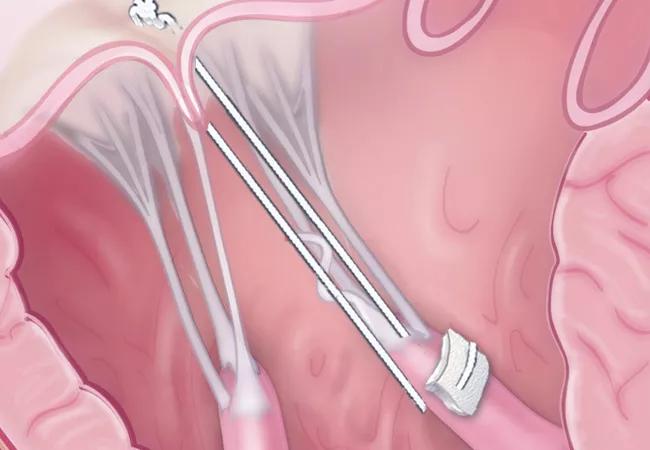Findings support early surgical referral regardless of valve pathology

Surgical repair of degenerative mitral valve disease is associated with low operative risk and excellent survival regardless of the complexity of the underlying mitral valve pathology, finds a large retrospective analysis from Cleveland Clinic (J Thorac Cardiovasc Surg. 2018 Apr 4 [Epub ahead of print]).
Advertisement
Cleveland Clinic is a non-profit academic medical center. Advertising on our site helps support our mission. We do not endorse non-Cleveland Clinic products or services. Policy
“For patients with severe but asymptomatic mitral regurgitation, the site of mitral valve prolapse has traditionally tended to influence the likelihood of surgical referral,” explains the study’s senior author, A. Marc Gillinov, MD, Chair of Thoracic and Cardiovascular Surgery at Cleveland Clinic. He says that while there’s consensus among cardiologists in support of early surgical referral for simple degenerative disease (i.e., involving posterior prolapse), many have been hesitant to refer patients with complex disease (i.e., involving anterior or bileaflet prolapse) out of a belief that watchful waiting for symptoms is safer in the latter group.
“Our data show that, in recent years, patients have been referred for early repair of severe mitral regurgitation regardless of the type and degree of valve prolapse and that this practice does not compromise outcomes,” Dr. Gillinov notes.
He and colleagues reviewed all 6,153 patients who underwent primary isolated mitral valve repair at Cleveland Clinic from January 1985 to January 2016, comparing outcomes between the 3,101 patients with simple disease (posterior prolapse) and the 3,052 with complex disease (anterior or bileaflet prolapse). Disease classification was based on preoperative echo images.
Patients with simple disease were significantly younger and more likely to be female but were comparable to patients with complex disease in terms of New York Heart Association (NYHA) functional class. The most common repair techniques were ring/band annuloplasty (performed in 99 percent of patients with simple disease and 98 percent of those with complex disease) and leaflet resection (performed in 90 percent and 74 percent, respectively).
Advertisement
Notably, patients’ preoperative echocardiographic features changed over time, with left ventricular size and mass declining steadily over the study’s first decade in the overall cohort and in both the simple and complex disease groups. The share of patients in NYHA class III or IV also decreased, from about 30 percent at the start of the study to 10 percent at the end. “Early surgical intervention has become more common over time,” Dr. Gillinov observes.
On propensity-matched analysis, 20-year survival was virtually the same between the groups (62 percent in patients with simple pathology vs. 61 percent of those with complex pathology; P = .6), and there were no significant differences in rates of any in-hospital complications.
The only between-group differences observed were in repair durability, which was evaluated in terms of longitudinal recurrence of mitral regurgitation and reoperation rates. Specifically:
“Mitral valve repair for degenerative mitral regurgitation carries low operative risk and yields excellent time-related survival regardless of valve prolapse complexity or symptom status, but repair durability is slightly lower with complex valve pathology,” says Dr. Gillinov.
Advertisement
He notes that these results are consistent with an earlier series published by his team, with the findings now extended for an additional 10 years. “We also found that more recent operation was associated with higher repair durability,” he adds.
“This work shows that similarly excellent survival is achievable with repair of simple and complex degenerative mitral valve disease as long as patients are referred before they develop left ventricle damage and dysfunction,” Dr. Gillinov observes. “In some cases, simpler disease can progress to more complex disease, and this constitutes another reason to recommend early surgical correction.”
Advertisement
Advertisement

How Cleveland Clinic is using and testing TMVR systems and approaches

NIH-funded comparative trial will complete enrollment soon

How Cleveland Clinic is helping shape the evolution of M-TEER for secondary and primary MR

Optimal management requires an experienced center

Safety and efficacy are comparable to open repair across 2,600+ cases at Cleveland Clinic

Why and how Cleveland Clinic achieves repair in 99% of patients

Multimodal evaluations reveal more anatomic details to inform treatment

Insights on ex vivo lung perfusion, dual-organ transplant, cardiac comorbidities and more